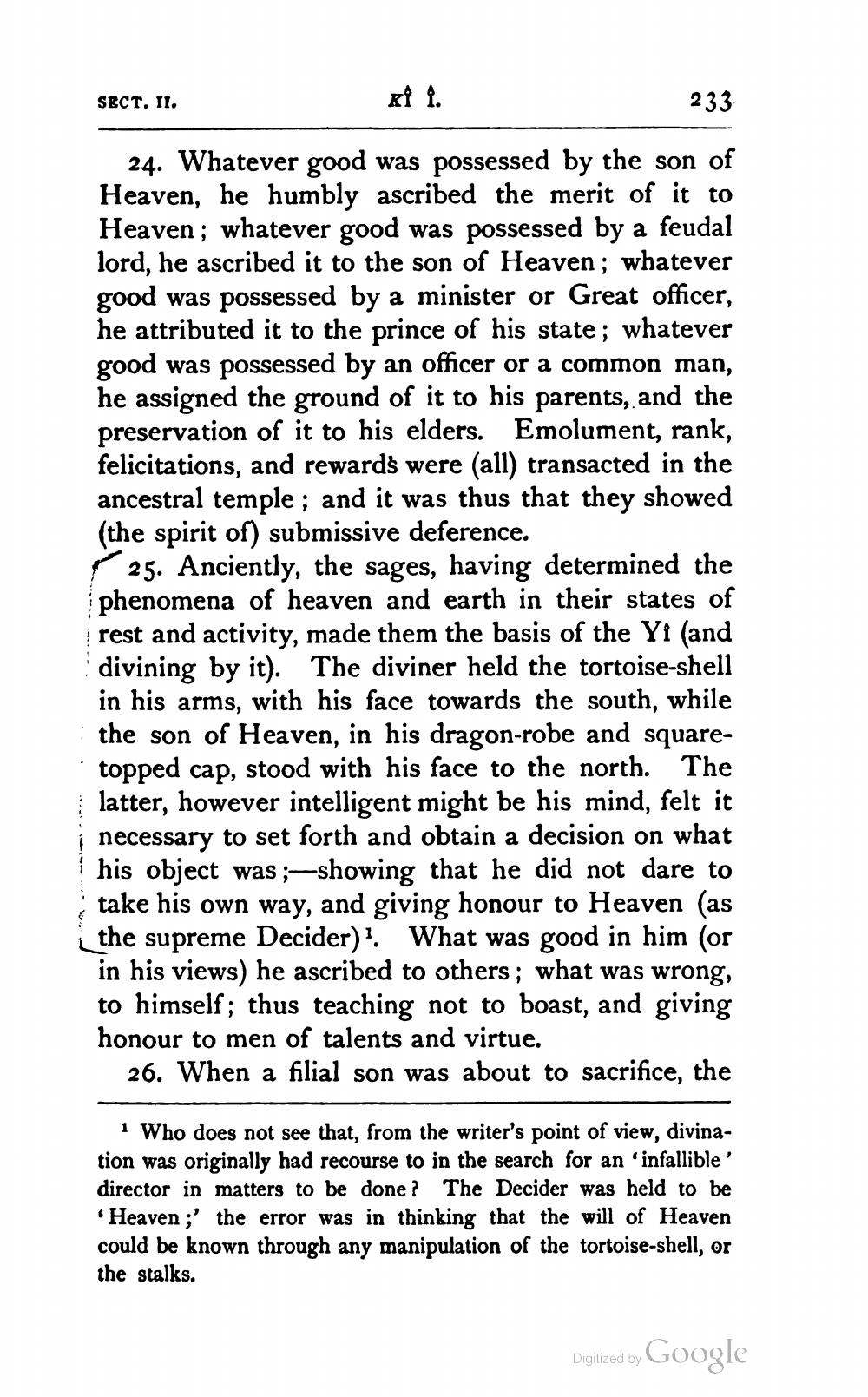________________
ki i.
233
24. Whatever good was possessed by the son of Heaven, he humbly ascribed the merit of it to Heaven; whatever good was possessed by a feudal lord, he ascribed it to the son of Heaven; whatever good was possessed by a minister or Great officer, he attributed it to the prince of his state; whatever good was possessed by an officer or a common man, he assigned the ground of it to his parents, and the preservation of it to his elders. Emolument, rank, felicitations, and rewards were (all) transacted in the ancestral temple; and it was thus that they showed (the spirit of) submissive deference.
SECT. II.
25. Anciently, the sages, having determined the phenomena of heaven and earth in their states of rest and activity, made them the basis of the Yi (and divining by it). The diviner held the tortoise-shell in his arms, with his face towards the south, while the son of Heaven, in his dragon-robe and squaretopped cap, stood with his face to the north. The latter, however intelligent might be his mind, felt it necessary to set forth and obtain a decision on what his object was;-showing that he did not dare to take his own way, and giving honour to Heaven (as the supreme Decider)'. What was good in him (or in his views) he ascribed to others; what was wrong, to himself; thus teaching not to boast, and giving honour to men of talents and virtue.
26. When a filial son was about to sacrifice, the
1 Who does not see that, from the writer's point of view, divination was originally had recourse to in the search for an 'infallible' director in matters to be done? The Decider was held to be 'Heaven;' the error was in thinking that the will of Heaven could be known through any manipulation of the tortoise-shell, or the stalks.
Digitized by
Google




